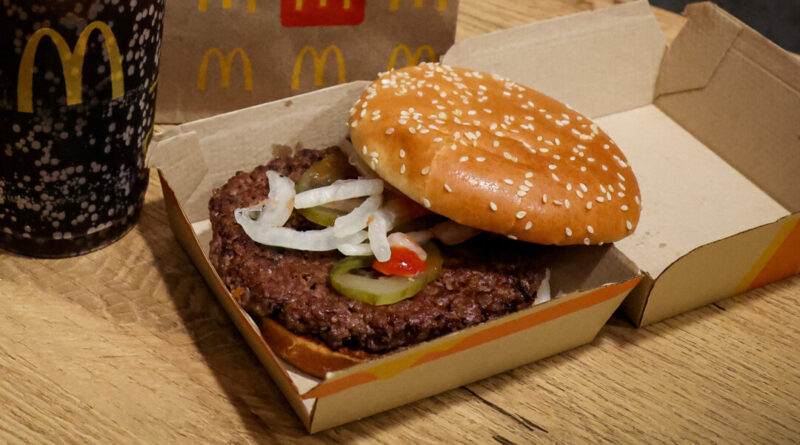McDonald’s Confirms Quarter Pounder Beef Patties Are Not Linked to E. Coli Contamination
A multistate outbreak of E. coli sparked warnings from federal officials.
McDonald’s said that beef patties used in its Quarter Pounder hamburgers were not the source of a deadly E. coli outbreak in multiple states that sparked warnings from the U.S. Centers for Disease Control and Prevention.
“Over the weekend, McDonald’s was informed that the Colorado Department of Agriculture has completed their testing, the results of which confirm that there was no detection of E. coli in the samples taken of Quarter Pounder beef patties from restaurants in this area,” the company said. “We’ve been informed there is no further testing planned for beef patties.”
The company said it will now ask beef suppliers to produce a new supply of fresh beef patties for the affected areas and that the Quarter Pounder will “be available in all restaurants in the coming week.”
McDonald’s indicated it had already stopped using the slivered onions last week amid an investigation into the cause of the outbreak.
“The 900 restaurants that historically received slivered onions from Taylor Farms’ Colorado Springs facility will resume sales of Quarter Pounders without slivered onions,” McDonald’s said in its statement. “Those restaurants are in Colorado, Kansas, and Wyoming, as well as parts of Idaho, Iowa, Missouri, Montana, Nebraska, Nevada, New Mexico, Oklahoma and Utah.”
Because of the actions taken by the two companies, the CDC said on its website that the public’s risk of E. coli infection is now “very low.”
“Most people in this outbreak are reporting eating the Quarter Pounder hamburger at McDonald’s before becoming sick. It is not yet known which specific food ingredient is contaminated,” the agency said.
At least one Colorado resident is suing McDonald’s, saying he became sick after eating there.
“There was a manufacturing defect in the products when they left Defendant’s possession and control. The products were defective because they contained E. coli. The presence of E. coli was a condition of the products that rendered them unreasonably dangerous,“ the lawsuit read in part. It also alleged that McDonald’s ”breached the implied warranty of merchantability” over the contamination.
Officials with the CDC and health experts say that symptoms of E. coli can start three to five days after ingesting the bacteria. These include severe stomach cramps, bloody diarrhea, vomiting, a low-grade fever, and a loss of appetite.
According to the Cleveland Clinic, if E. coli spreads outside the stomach, other symptoms can be present. Should the bacteria infect the urinary tract, symptoms include pelvic or abdominal pain, pain or burning sensation when urinating, an urgent need to urinate frequently, and cloudy or foul-smelling urine.
The CDC says that individuals who suspect they may have contracted E. coli and have severe symptoms should contact a health care provider. Severe symptoms can include a fever of 102 degrees F or higher, diarrhea for more than three days that is not improving, bloody diarrhea, vomiting so much that liquids cannot be kept down, and signs of dehydration such as not urinating often, a dry mouth and throat, and feeling dizzy when standing.




